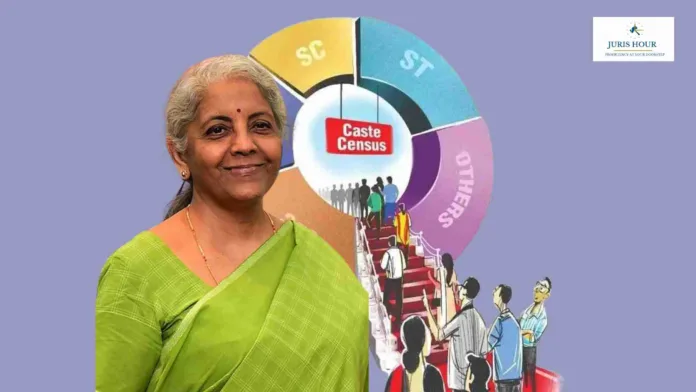Union Finance Minister Nirmala Sitharaman, speaking at an event held by Shankar IAS Academy to felicitate newly selected civil service officers, clarified that the Centre’s decision to conduct a caste-based census is not politically motivated. Instead, she emphasized that the initiative aims to gather data to improve opportunities for the underprivileged.
Responding to claims by the DMK and the INDIA bloc regarding the census, Sitharaman said that the DMK should not attempt to gain political mileage from the exercise, especially when it claims to stand for samathuvam (equality). She criticized the persistence of caste-based divisions in Tamil Nadu, citing incidents like caste-marked street names and historical caste-based discrimination in public utilities, asserting that such acts surpass those seen in states often labeled as backward.
On the topic of funding, Sitharaman addressed Tamil Nadu Chief Minister M.K. Stalin’s accusation that the Central government was withholding financial support. She stated that while public posturing suggests otherwise, several DMK leaders had privately thanked her for the funds received, including under the MGNREGA scheme.
In response to allegations of corruption within the AIADMK-BJP coalition, she pointed out that Ministers from the DMK-led government had been asked to resign by the courts over corruption and other charges. Using a veiled English idiom — “Who is quoting the Bible?” — she questioned the appropriateness of the DMK making such accusations.
She also challenged the claim that the BJP government offers tax benefits solely to corporates, urging critics to present evidence. She pointed to the growth of MSMEs in Tamil Nadu as a sign of balanced policy-making. Further, she highlighted the irony of the DMK criticizing the Adani Group despite the Vizhinjam Port project in Kerala being awarded to Adani by the Congress government — the DMK’s ally — without a tender process.
Reflecting on the civil services, Sitharaman noted a historical dip in successful candidates from Tamil Nadu post the 1950s, which only improved after the Mandal Commission’s recommendations. Currently, the state has over 900 officers in the services, yet she encouraged greater participation from Tamil Nadu’s youth in public administration.

